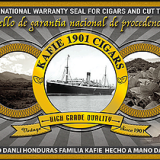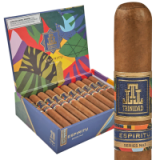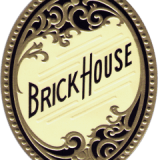When it comes to cigars, the aging process is an important factor in determining the flavor and overall quality of a cigar. Aging a cigar can make all the difference between an average smoke and a truly remarkable one. To get the most out of your cigars, understanding how to age them properly is essential.
Contents:
Aging cigars involves more than just leaving them stored away for months or even years at a time. It requires specific conditions that must be met in order to ensure that they are properly aged. The ideal storage environment should have low humidity levels (60-70% relative humidity) and temperature control (ideally 70°F/21°C). This helps preserve their flavors over time as well as slow down the effects of oxidation on tobacco leaves which would otherwise degrade them prematurely. Light exposure should be kept to a minimum so as not to damage delicate wrappers.
The length of time needed for aging will vary depending on the type of cigar being smoked; some varieties require up to five years before they reach peak flavor while others may take less than two years. There are also certain types of tobaccos used in different blends which can affect how long it takes for a cigar to reach its full potential flavor profile after being aged. For instance, Connecticut shade-grown wrapper tobaccos tend to take longer because they are usually thicker and denser than other varieties like Corojo or Habano wrapper tobaccos which can mature faster due to their thinner nature and higher sugar content respectively.
To check if your cigar has been properly aged you’ll need some experience tasting different cigars since there’s no exact way of telling whether or not it has reached its prime without actually smoking it first hand – although many experienced smokers swear by pressing gently on each end with your fingers as this is said to reveal any inconsistencies within the stick itself such as soft spots indicating too much moisture or hard spots indicating dryness from prolonged aging periods that have gone beyond optimal timescales. Ultimately, when looking for top notch smokes you want something that has been aged just right – not too little where its tastes haven’t fully developed yet but also not too long where its flavors have faded away into nothingness. So make sure you know what kind of cigars you’re buying beforehand and don’t forget about those important storage conditions mentioned above – because when done correctly aging can turn good smokes into great ones!
Aging Cigars: The Basics
Aging cigars is a process that can greatly improve the flavor of your cigar. While some people may think it’s an intimidating task, there are actually quite a few simple steps you can take to get started.
To begin with, the most important factor when aging cigars is storage. You’ll want to find a place that has good air circulation and consistent temperatures around 68-70 degrees Fahrenheit and 70% humidity. The best places for this are typically humidors or special wooden boxes made specifically for storing cigars. It’s also important to store your cigars away from any strong odors like gasoline or paint fumes as these can affect their taste over time.
Another key element in aging cigars is patience. Depending on the type of cigar, they may need anywhere from two months to five years before they reach peak flavor potential. To ensure you’re getting the best out of them, it’s important not to smoke them too early; if they don’t have enough time to age properly, then you won’t be able to appreciate all the flavors they offer at their fullest potential. Make sure you rotate your stock every once in awhile so none of your older batches sit too long without being enjoyed!
Remember that aging cigars isn’t just about waiting; it’s also about monitoring progress along the way and making adjustments as needed. Make sure you check up on your collection regularly so nothing gets neglected and adjust temperatures/humidity levels accordingly depending on what kind of changes in taste you’re looking for over time (i.e. more mellow vs more intense). Doing this will help ensure that each one ages perfectly according to its own unique characteristics and provide maximum enjoyment when smoked down the road.
The Benefits of Aging
Aging cigars can provide a variety of benefits for connoisseurs looking to get the most out of their smoke. By allowing cigars to mature, smokers can enjoy an enhanced flavor profile and more complex aromas. Aging also helps reduce bitterness in the taste of the cigar, creating a smoother and mellower experience overall. Aging brings about changes in texture which are very noticeable when smoking aged cigars as opposed to fresh ones. The draw becomes much easier and you can often expect thicker clouds of smoke with each puff that you take. For those who are seeking a richer experience with their cigar, aging is almost always beneficial – though it should be noted that not all varieties will benefit from aging in the same way or to the same degree. For example, certain milder cigars may only require short periods of time while others may need several years before they reach peak maturity and full potential. While there is no one-size-fits-all answer when it comes to how long a particular cigar needs to age, many experienced aficionados agree that at least six months is necessary for any noticeable differences in flavor or aroma.
The process of aging itself is quite simple; just keep your cigars away from sources of direct sunlight or heat such as windowsills or car dashboards, stored in boxes inside temperature-controlled rooms where humidity levels remain constant (usually around 70%). This will ensure that your beloved smokes remain intact until they have had enough time to reach optimal maturity levels – resulting in maximum enjoyment during every single puff.
Storage Tips for Maximum Flavor
When aging cigars, the most important factor to consider is storage. An improper storage method can cause your cigar to lose flavor and dry out prematurely. Here are some tips for storing cigars in order to get the maximum flavor and quality out of them:
First, always store your cigars in a humidor. Humidors provide an optimal temperature and humidity level for cigar aging; without it, you may find that the taste of your cigar has changed drastically over time. Try to keep them away from direct sunlight as this can degrade the wrapper leaf quickly. Keep your humidor well-stocked with distilled water or propylene glycol solution so that it remains at a consistent level of humidity.
The best way to ensure maximum flavor when aging cigars is by rotating them regularly. This helps prevent mold growth on the wrappers and keeps the tobacco fresh and flavorful over time. Also, make sure you avoid stacking too many cigars together as this can create hot spots which lead to uneven flavors due to varying levels of heat exposure during storage.
If you plan on aging multiple boxes of different types of cigars then it’s best to separate each box into its own individual container such as a mason jar or airtight plastic bag before placing it in your humidor. This will help preserve their unique characteristics while also preventing any cross contamination between different brands or styles of cigar tobacco leaves.
Uncovering Hidden Flavors
For those looking to explore the depths of flavor when aging cigars, there is a variety of strategies to consider. To start, it’s important to select a cigar that has quality tobaccos and construction – this will ensure the desired flavors are present in the final product. Once you have chosen your cigar, think about what type of environment you want to age them in. Temperature and humidity play an important role in how the flavors develop during aging; too much humidity can cause mold while too little may dry out your precious smokes. The next step is finding just the right amount of time for proper aging; three months or more should be enough for milder cigars, but strong ones may need even longer.
To unlock hidden layers of flavor within your aged cigars, try tasting them side-by-side with younger versions from the same brand and blend. This will give you a better understanding of how different environments affect taste over time. Aging can bring out notes like spice, sweetness, creaminess and cedar as well as muted tones like leather or earthy tobacco. When done correctly, each puff should offer something new and intriguing.
Don’t forget about pairing aged cigars with drinks such as coffee or whiskey that complement their nuances and make for an enjoyable smoking experience overall. By taking into account these tips on uncovering hidden flavors when aging cigars, you can embark on a journey sure to leave an indelible mark on all your senses.
Preserving Freshness
Preserving the freshness of a cigar is essential to ensuring that its flavor, aroma, and burn are at their peak. There are many ways to store cigars in order to keep them as fresh as possible. The two most popular methods for storing cigars involve either using humidors or simply keeping them in an airtight container.
Humidors are specialized storage boxes specifically designed to maintain the ideal level of humidity for cigar storage. They come in various sizes and can range from small desktop models to large walk-in units with room for thousands of cigars. Inside the humidor, a humidifier device maintains a constant level of humidity between 65% and 70%, which helps preserve moisture levels within the tobacco leaves and keeps them pliable enough to smoke without cracking or unraveling when lit. Certain types of wood may impart specific flavors onto the tobacco leaves stored inside if used as lining material for a humidor.
For those who don’t want to invest in a full-fledged humidor, keeping cigars sealed in an airtight container is another option available. An appropriately sized plastic container can be filled with distilled water or water treated with propylene glycol before being sealed shut; this creates an environment where humidity is kept at around 70%. Wrapping each individual cigar individually in wax paper can also help prevent dehydration while they’re stored away. If neither of these solutions works well enough then investing into other portable options such as electric travel cases might be worth considering too; these provide both temperature control and humidity regulation all rolled into one package suitable for carrying on trips without having any worries about compromising your beloved stogies.
Humidor Maintenance
Cigar aficionados understand the importance of humidor maintenance to keep cigars aging properly. Humidors are airtight boxes that store cigars in a controlled environment with ideal humidity and temperature levels. Achieving these desired conditions is crucial for preserving the flavor and aroma of aged cigars. It also helps to prevent cracking, molding, or other damage caused by fluctuating temperatures and humidity levels.
Humidors must be regularly monitored and adjusted as needed to maintain proper humidity levels, which typically range between 65-72%. To ensure accurate readings, it is important to use hygrometers calibrated specifically for cigar storage. Certain models may require regular cleaning using distilled water or specialized cleaners designed for this purpose. Cigar enthusiasts should consult their humidor’s manufacturer guidelines regarding appropriate care practices before attempting any maintenance procedures.
When storing multiple types of cigars in a single humidor, consider designating separate areas within the box for each type of cigar according to brand or blend preference; this will help prevent flavor contamination from one variety affecting another. Keeping different varieties apart can also help avoid possible cross-contamination when using flavored wrappers such as cedar wraps used on milder blends like Connecticut Shade wrappers or Maduro wrappers used on more full-bodied smokes like Cubans and Nicaraguans.
Cigar’s Journey Through Time
As a cigar ages, its flavor and complexity become more pronounced. The journey of an aged cigar through time is quite remarkable. Over the course of months and years, cigars undergo subtle changes in aroma, taste, and texture that can significantly enhance their enjoyment.
The aging process begins as soon as a cigar leaves the factory. Throughout its maturation period, a cigar must remain properly humidified to ensure optimal results; this means storing it at temperatures between 65-70 degrees Fahrenheit and 70-75 percent relative humidity. Cigar enthusiasts have long known that certain storage conditions can accelerate or slow down the aging process depending on how they are managed. For instance, if kept in a cooler environment with higher humidity levels (80 percent or more), tobacco oils will be extracted faster than usual and result in smoother flavors sooner rather than later. Conversely, keeping cigars too dry can cause them to lose much of their character over time due to evaporation of essential oils within the tobacco leaves themselves.
Aging also has a considerable impact on coloration; many tobaccos darken considerably with age while some may even lighten up slightly depending on how they were originally processed prior to rolling into cigars themselves. Aging allows for different types of tobaccos used in blending purposes to marry together better – creating something truly unique from what was originally presented when young. This marriage results in complex aromas and tastes ranging from earthy notes all the way up sweet nuances that weren’t previously present before maturing took place!
Discovering Your Taste Preferences
When it comes to enjoying a good cigar, the journey starts with discovering your own personal taste preferences. For some, this may take a few attempts, while for others it could be a lifelong pursuit. Regardless of where you stand on the spectrum, understanding what flavors and aromas appeal to you is key to finding the perfect smoke.
One way to identify your preferred style of cigar is by sampling cigars from different countries and regions. Different soils produce unique flavors in tobacco leaves which then come through when smoking the cigar. For example, Cuban cigars are known for their earthy undertones while Dominican varieties are often more full-bodied and spicy. Aging can also have an effect on the flavor profile as well; many find that aged cigars tend to be smoother and less harsh than younger versions.
Another avenue for exploring different tastes is trying out various wrappers or binders – these can drastically change how a cigar smokes even if they contain similar filler tobaccos inside them. Light wrappers like Connecticut Shade will typically offer more mild notes such as cedar or hay while darker wrappers like Maduro provide fuller bodied flavors like chocolate or espresso beans – both of which will complement any blend nicely. No matter what your preference may be, there’s sure to be something out there that suits you perfectly!











